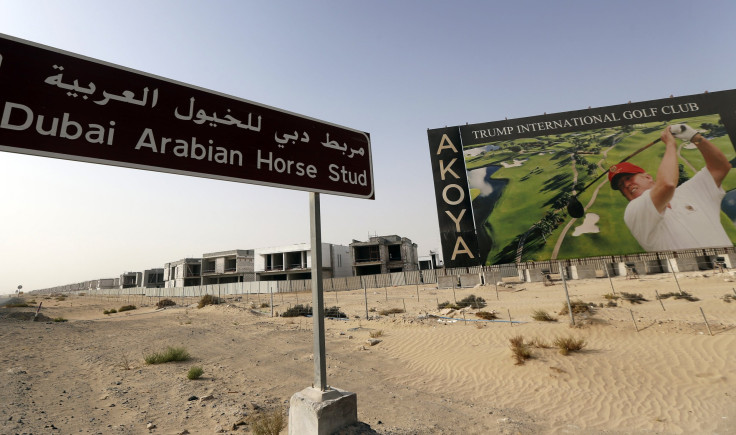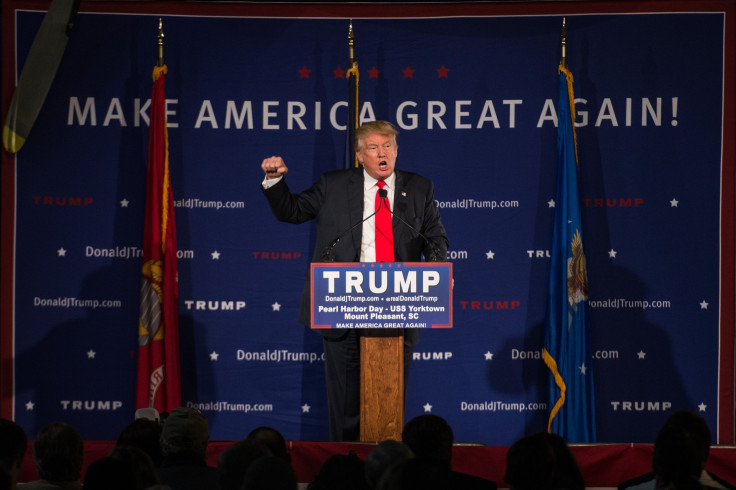Donald Trump’s Call To Ban Muslims Could Cost His Company Investors, Customers And Workers

Donald Trump’s recent call to ban Muslims from entering the United States may play well with his fervent backers in the Republican presidential primary, but it promises to complicate his company’s sprawling, global business operations.
The proposal, which Trump made after the Dec. 2 San Bernardino mass shooting by a Muslim couple, will “definitely have an impact on investors and customers alike,” said Fabian Geyrhalter, founder and head of the brand consulting agency Finien.
Some businesses are already acting. Lifestyle, for exapmple, the prominent Dubai-based home decor chain, has announced plans to remove all Trump products from its shelves at 195 outlets across the Middle East, North Africa, Pakistan and Tanzania.
Meanwhile, one of Trump’s former supporters, Dubai mogul Khalaf al-Habtoor, has bashed the candidate’s remarks as a “huge mistake,” telling the Financial Times that in the region Trump’s “brand is a liability, not an asset.”
Other Middle Eastern business partners have been more discreet: Qatar Airways, which leases office space in Trump Tower in Manhattan, has yet to comment on the policy proposal. Neither have the owners of the Trump Towers Istanbul development or the Trump Hotel and Tower in Baku, Azerbaijan. Luxury developer Damac Properties, which is building the Trump International Golf Club in Dubai, initially said it viewed its business ties as distinct from Trump’s “personal or political agenda.” But then, two days later, it quietly removed billboards bearing the executive's image.
That's because consumers' tastes matter, according to Geyrhalter: “Muslims or anybody who’s not white, really, are probably going to be second-guessing what hotel or golf club they want to go to."

David Forbes, a marketing expert, agrees consumers will respond negatively, especially in an era when social media quickly amplifies incendiary comments of this sort: “In terms of his Middle East business, or any place where the clients are Muslims, this can’t be good news.”
In May, Trump’s daughter Ivanka told a real estate trade publication that the Trump Hotel Collection was considering new investments in the United Arab Emirates, Qatar and Saudi Arabia.
Fay Beydoun, executive director of the American Arab Chamber of Commerce, said the proposed travel ban is likely to create friction between the Trump Organization and its business partners in the region.
“How’s this going to work? He’s going to be flying to the Middle East but his business partners aren’t going to be allowed to enter the United States?” Beydoun said. “What a double standard.”
Countries outside the Arab world also have large Muslim populations, she said: “I don’t think he really thought this through.”
Frustrations could arise among the Trump workforce, too.
Geyrhalter said the proposed ban will likely create internal friction at Trump-owned brands -- especially in light of the candidate’s remarks this summer about Mexican immigrants. (He attacked them, saying: “They're bringing drugs. They're bringing crime. They're rapists.”) Current employees might feel alienated, or uncomfortable about working for someone with such widely known discriminatory views. Likewise, prospective hires may feel discouraged from applying.
“In the financial and business world, people don’t want to be associated with people seen as being extreme,” Geyrhalter said.
© Copyright IBTimes 2024. All rights reserved.












